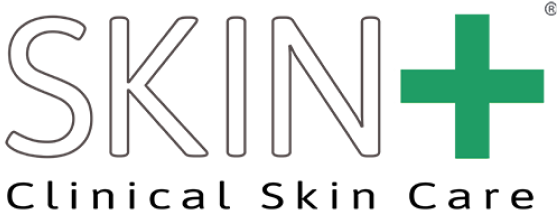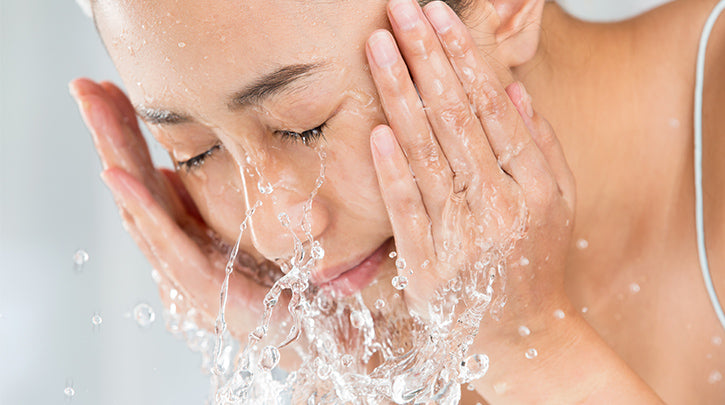Cleansing is the most basic part of any skincare routine, but when you have acne-prone skin, the simple act of washing your face becomes way more complicated. The good news? When done correctly, cleansing helps clear acne, regulate excess oil, improve the appearance of acne scars, and support a healthy skin barrier. The bad news? There are a million ways to get it wrong.
Whether you’re dealing with teen acne, adult acne, hormonal acne, or even fungal acne (like pityrosporum folliculitis), it’s important to use the right products, the best face wash for your skin type, and a consistent skincare routine. As an esthetician who has helped thousands of clients treat acne without prescription medications, I’m answering the top 10 questions I get about face washing and facial cleansers.
Let’s clear up the confusion so you can clear up your skin.
1. Do I Really Need to Wash My Face in the Morning?
Yes. Even if you washed your face before bed, your skin accumulates oil, sweat, dead skin cells, and bacteria overnight. This includes acne-causing bacteria that can clog your hair follicles and lead to new breakouts. For oily skin or acne-prone skin, skipping your morning cleanse can allow excess sebum and bacteria to sit on your skin longer, increasing the chances of clogged pores. Plus you want to wash off your night time routine to prepare your skin for your morining routine.
Choose a gentle cleanser formulated for your skin type—especially if you’re using active ingredients like Mandelic Acid, Retinol, benzoyl peroxide, salicylic acid, or glycolic acid in your nighttime routine. A simple, non-stripping cleanse in the morning supports healthy skin without overdoing it.
2. Should I Double Cleanse?
Double cleansing is the process of washing twice, whether it is with a different type of cleanser, micellar water, or the same cleanser to remove sunscreen, makeup, and excess oil, followed by a water-based gentle cleanser to wash away residue and impurities. It’s especially helpful for people who wear heavy makeup or reapply sunscreen often.
For those with acne-prone skin who wear heavy makeup, oil cleansers can be helpful—but only if the formula is non-comedogenic and safe for acne. Otherwise, oil-based cleansers may trigger new breakouts. If you have sensitive skin, hormonal acne, or cystic acne, stick with a gentle, pH-balanced cleanser that won’t strip your barrier.
Pro tip: If you’re wearing mineral sunscreen, you should double cleanse. Zinc and titanium dioxide cling to the skin and are best removed with a thorough cleanse.
3. How Long Should I Wash My Face For?
Social media trends like the “60-second cleansing rule” recommend washing your face for a full minute to allow active ingredients to work and give your skin time to release oil and dirt. While there’s no magic number, most dermatologists and estheticians agree that 30 to 60 seconds is ideal.
Use circular, gentle motions with your fingertips (not a washcloth or scrubbing tool) to clean the skin thoroughly without causing irritation. Over-scrubbing leads to skin irritation, worsens the appearance of acne scars, and may cause microtears in sensitive skin.
4. Can Washing Too Much Cause Acne?
Absolutely. Overwashing can disrupt the skin’s barrier and increase oil production as your sebaceous glands try to compensate. This excess oil, combined with dead skin cells and acne-causing bacteria, is the perfect recipe for new breakouts.
For most people, washing your face twice a day is enough. If you have dry skin, sensitive skin, or are using strong acne medications like topical retinoids or azelaic acid, washing once a day (usually at night) may be enough. If your skin feels tight or itchy after washing, your cleanser may be too harsh. Read my blog here to learn how overwashing your face can cause damage to your skin barrier.
5. What’s the Best Cleanser for Acne-Prone Skin?
The best acne cleansers are:
-
pH-balanced
-
Sulfate-free
-
Free of artificial fragrances or dyes
-
Contain acne-fighting key ingredients like salicylic acid, benzoyl peroxide, or glycolic acid (depending on your type of acne)
Salicylic acid helps unclog pores and reduce inflammation. Benzoyl peroxide kills acne-causing bacteria. Glycolic acid and lactic acid (both alpha hydroxy acids) help with cell turnover and exfoliation. Zinc soap can also be useful for fungal acne or oily skin types.
For hormonal acne, adult acne, or cystic acne, talk to your esthetician or a board-certified dermatologist about the best cleanser for your skin.
6. Do I Need to Wash My Face After Working Out?
Yes. Sweat, oil, and bacteria build up quickly when you exercise, and leaving them on your skin too long can lead to clogged pores and acne breakouts. This is especially true for oily skin and acne-prone skin.
The best way to cleanse after a workout is to use a gentle cleanser as soon as possible. If you can’t do a full cleanse right away, use a leave-on product like a micellar water only in a pinch (or DIY gauze pads soaked in a gentle cleanser like Skin+ Pro B5 Wash) to remove sweat and oil until you can wash properly. See my blog here for how to make your own DIY Face wipes.
7. Can Micellar Water Replace Face Wash?
Micellar water is a popular cleansing option, especially for sensitive skin or travel. While it does help remove makeup and light dirt, it doesn’t fully cleanse the skin like a facial cleanser does. It often leaves behind residue that may irritate acne-prone skin.
Micellar water can be used as a first cleanse or for emergencies, but it should not fully replace a cleanser—especially if you’re using acne products or dealing with hormonal fluctuations, oily skin, or active breakouts.
8. What’s the Difference Between Gel, Foam, Cream, and Balm Cleansers?
Knowing the difference between different products is crucial for building the right skincare routine:
-
Gel cleansers: Ideal for oily skin and acne-prone skin. They remove excess oil without stripping.
-
Foam cleansers: Can be drying if they contain sulfates. Best for very oily skin only.
-
Cream or milk cleansers: Good for dry skin, mature skin, or sensitive skin.
-
Balm/oil cleansers: Usually used for double cleansing, check the ingredient list to make sure they’re non-comedogenic, as most will be highly comedogenic. I do not recommend these.
Each skin type (from combination to oily to dry) benefits from different face cleanser formulas. When in doubt, consult your esthetician.
9. Can a Cleanser Alone Clear My Acne?
Short answer, NO! A cleanser is the starting point, not the full solution. While using the best acne cleansers and the right cleansing method can help clear acne, especially in the early stages, you need a full treatment plan that includes active ingredients like benzoyl peroxide, salicylic acid, topical retinoids, or azelaic acid.
A leave-on product Like our CytoClear Mandelic Acid, stays on the skin longer and delivers stronger results than wash-off formulas. The best acne treatments target multiple causes of acne, including excess oil, clogged pores, and acne-causing bacteria.
10. Can Face Wash Trigger Acne or Irritation?
Yes—if you’re using the wrong product for your skin type or not reading the ingredient list. Harsh sulfates, artificial fragrance, essential oils, or comedogenic ingredients (like certain fatty acids) can clog pores and cause new breakouts.
Cleansers with active ingredients like salicylic acid, glycolic acid, or benzoyl peroxide can be too drying or irritating if not balanced with calming, hydrating ingredients like hyaluronic acid or vitamin B5. Sensitive skin types should be extra cautious when trying new acne medications or cosmetic products.
For pregnant women or those dealing with hormonal changes related to the menstrual cycle, some ingredients may be off-limits. Always consult a healthcare provider or board-certified dermatologist before starting new acne products during pregnancy.
Final Thoughts: How to Choose the Right Cleanser for You
The best way to find the right face wash is to:
-
Understand your skin type (oily, dry, combination, or sensitive)
-
Identify your type of acne (acne vulgaris, cystic acne, fungal acne, etc.)
-
Read the ingredient list and check for pore-clogging ingredients with our online checker
-
Avoid common irritants (fragrance, harsh surfactants, comedogenic oils)
-
Stick to a routine and don’t switch products too frequently
Acne affects nearly everyone at some point—it’s the most common skin condition in the world. But that doesn’t mean you have to live with it. With proper skin care, the right products, and help from a skincare expert, clear skin is possible.
If you're struggling with new breakouts, scarring, or can't find the best way to clear acne, it’s worth reaching out for professional guidance. I’ve worked with hundreds of clients who thought they had tried everything—and together, we built a treatment plan that gave them real results.
Want product recommendations for your skin type or acne concerns? Reach out to schedule a consult, or check out our full guide to acne-safe skin care products.


